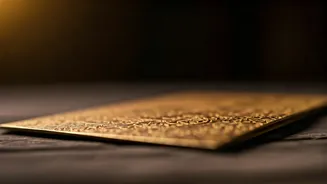Initial Rejections Faced
The journey through the arranged marriage market can be filled with unforeseen obstacles, and for this individual, a 32-year-old woman, the path was particularly
rough. Her family started the search for a suitable match back in 2017, dedicating considerable effort to finding a compatible partner. Despite their persistence, the woman encountered numerous rejections. These rejections were not simply due to a lack of options but stemmed from the perceived inadequacy of the woman, particularly when judged by societal standards. The criteria seemed to focus heavily on physical appearance, with comments like "too dark" and "fat" being cited as contributing factors to her unsuccessfulness in finding a partner. This highlighted the pressures placed upon women to conform to certain physical ideals, often overshadowing other qualities.
Why the Rejections?
The reasons behind the rejections, as shared by the Redditor, provided a glimpse into the superficial standards that are often prevalent within the arranged marriage process. Appearance played a significant role, with terms such as "too dark" and "fat" being used to describe the woman, indicating that her physical characteristics were not meeting the perceived criteria of prospective suitors or their families. These judgments were based on superficial factors, suggesting that deeper compatibility and character were often secondary considerations. This preference for particular physical traits reflected broader societal pressures and biases related to beauty standards and body image. The situation brought to light how such shallow requirements could contribute to the exclusion of individuals, potentially undermining the chances of finding genuine connections based on shared values and mutual respect.
Internet's Response
The public discourse sparked by the woman's experiences shows the power of the internet as a forum for reflection and debate. Online platforms like Reddit provided a space for individuals to share and discuss the challenges inherent in the arranged marriage system. The reactions to the story, likely involving a combination of sympathy, criticism, and expressions of shock, shed light on the pervasive issues of objectification and unrealistic expectations. It also prompted wider conversations about the pressures on women to conform to specific beauty standards within the Indian context. Social media users and online commentators would have shared their experiences, offered insights, and maybe even criticized the attitudes and biases prevalent in the marriage market. The online community's engagement underscored the importance of openly discussing such topics and challenging deeply entrenched societal norms.


















